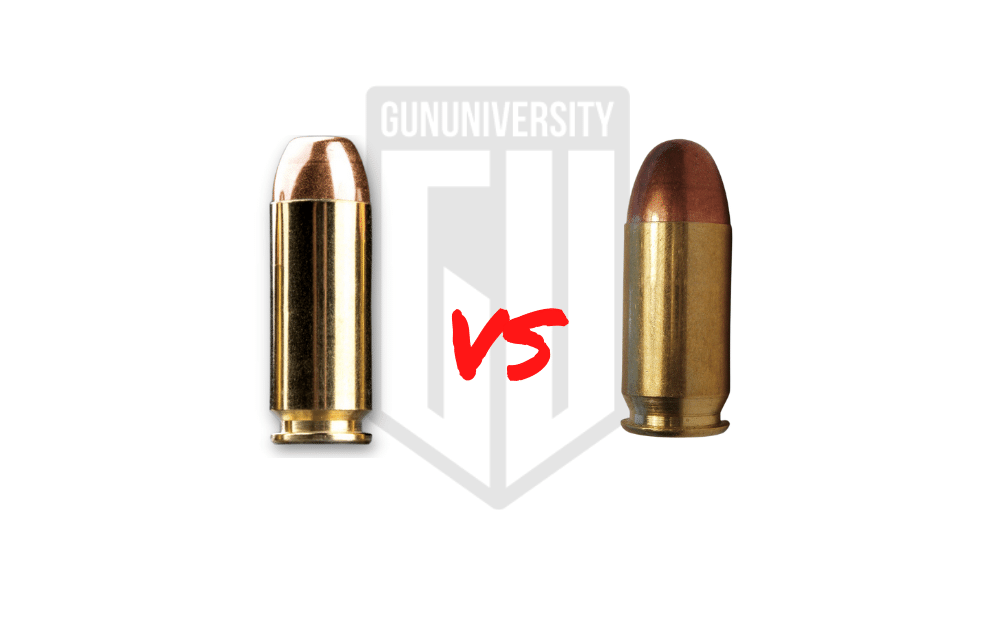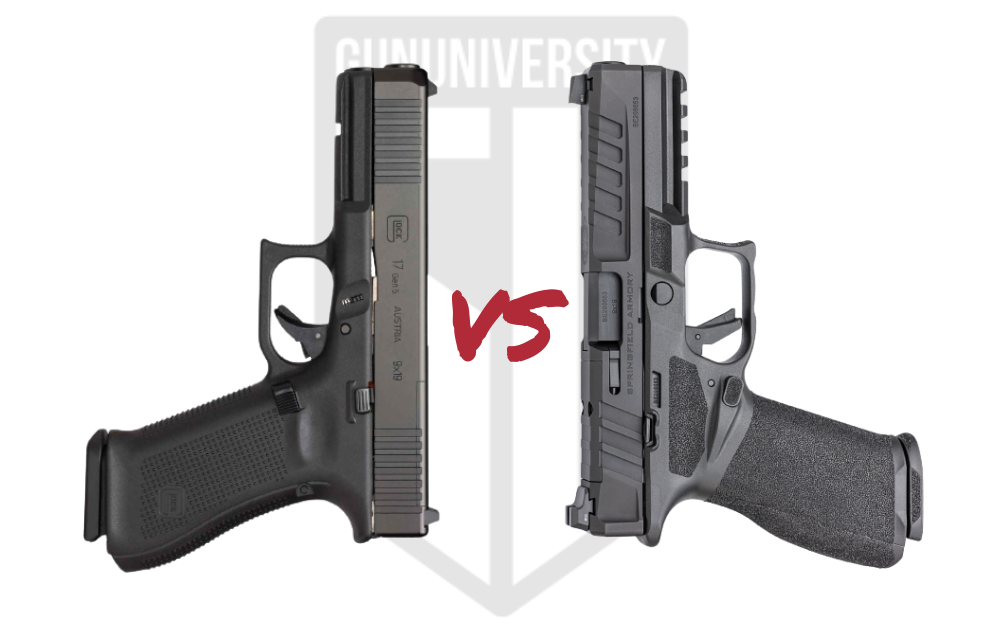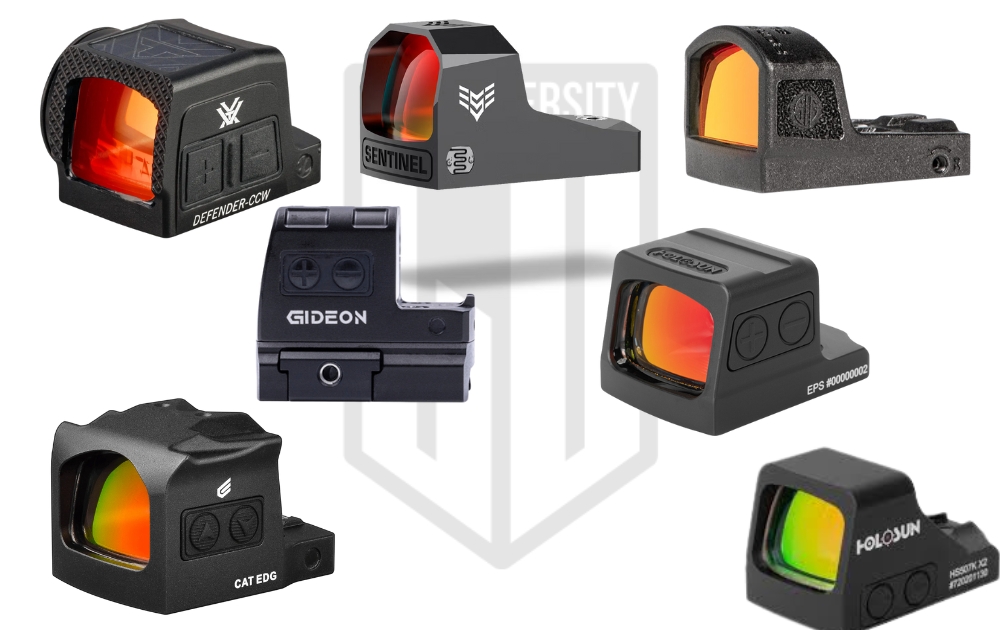Universal Background Checks Act of 2019 (HR 8) [EXPLAINED]
On January 8th, 2019, Rep Mike Thompson (Dem, CA) introduced the Universal Background Check Bill of 2019. The bill, which would effectively ban most private firearm sales/transfers, passed out of committee and to the full House for a vote.
Universal Background Check Bill
This background check bill will prohibit non-Federal Firearm Licensees (FFLs) from transferring a firearm to another non-FFL unless background check is conducted by an FFL.
Plain language? Normal citizens would no longer be able to sell or give a gun to another normal citizen without going through a gun store first for a background check.
As Adam Kraut points out in this video on the bill below, the bill aims to close a so-called loophole that allows transfers at gun shows (it’s also legal everywhere else, by the way).
Private Gun Sale Ban
This bill would not ban ALL private gun sales (transfers) – there are some exceptions in the bill (below). Of course, there’s one giant exception… get your own FFL.
This is scary news on the heels of news of the Assault Weapon Ban of 2019. Democrats have clearly made gun control a priority. After news of President Trump speaking about declaring a national emergency to get the Mexico border wall built, Sen. Nancy Pelosi threatened to use the same power in the future to ban guns.
According to the Washington Post, Sen. Richard Blumenthal (D-Conn.), who lied about serving in Vietnam, tweeted, “[this bill] is least we can do to make perpetrators of gun violence less lethal & keep our children, coworkers, & neighbors safe.”
It’s unclear to us how a background check makes a criminal (see: someone who doesn’t follow the law) less lethal.
According to the Universal Background Check Bill, an FFL can’t be forced to do a transfer and the FFL can charge whatever they want. The Bill is obviously bad news for those that support the entire Bill of Rights, but this part is the one piece of decent news – if this horrible bill passes, FFLs should not be forced to do something that they don’t want to do.
It is also unclear to us how this law could ever be enforced without a regulation of standard firearms (which is, by the way, illegal).
Universal Background Check Exemptions
Exceptions to the potential ban on private sales:
- Law Enforcement, Military, and armed private security while acting in their official capacity
- Immediate family members (spouses, parents, children, etc.)
- This makes us wonder about impromptu gay marriages and quick divorces that might take place at gun-shows.
- Estate transfers such as through wills
- Self defense purposes for as long as a need exists
- When does the need for self-defense stop?
- Shooting range and hunting use
Text of Background Check Bill / Private Transfer Ban
Here’s the full text of HR8, the Universal Background Check Bill:
116th CONGRESS
1st Session
H. R. 8To require a background check for every firearm sale.
_______________________________________________________________________
IN THE HOUSE OF REPRESENTATIVES
January 8, 2019
Mr. Thompson of California (for himself, Mr. King of New York, Mr.
Nadler, Mr. Fitzpatrick, Ms. Jackson Lee, Mr. Mast, Ms. Kelly of
Illinois, Mr. Upton, Mrs. McBath, and Mr. Smith of New Jersey)
introduced the following bill; which was referred to the Committee on
the Judiciary_______________________________________________________________________
A BILL
To require a background check for every firearm sale.
Be it enacted by the Senate and House of Representatives of the
United States of America in Congress assembled,SECTION 1. SHORT TITLE.
This Act may be cited as the “Bipartisan Background Checks Act of
2019”.SEC. 2. PURPOSE.
The purpose of this Act is to utilize the current background checks
process in the United States to ensure individuals prohibited from gun
possession are not able to obtain firearms.SEC. 3. FIREARMS TRANSFERS.
Section 922 of title 18, United States Code, is amended–
(1) by striking subsection (s);
(2) by redesignating subsection (t) as subsection (s); and
(3) by inserting after subsection (s), as redesignated, the
following:
“(t)(1)(A) It shall be unlawful for any person who is not a
licensed importer, licensed manufacturer, or licensed dealer to
transfer a firearm to any other person who is not so licensed, unless a
licensed importer, licensed manufacturer, or licensed dealer has first
taken possession of the firearm for the purpose of complying with
subsection (s).
“(B) Upon taking possession of a firearm under subparagraph (A), a
licensee shall comply with all requirements of this chapter as if the
licensee were transferring the firearm from the inventory of the
licensee to the unlicensed transferee.
“(C) If a transfer of a firearm described in subparagraph (A) will
not be completed for any reason after a licensee takes possession of
the firearm (including because the transfer of the firearm to, or
receipt of the firearm by, the transferee would violate this chapter),
the return of the firearm to the transferor by the licensee shall not
constitute the transfer of a firearm for purposes of this chapter.
“(2) Paragraph (1) shall not apply to–
“(A) a law enforcement agency or any law enforcement
officer, armed private security professional, or member of the
armed forces, to the extent the officer, professional, or
member is acting within the course and scope of employment and
official duties;
“(B) a transfer that is a loan or bona fide gift between
spouses, between domestic partners, between parents and their
children, between siblings, between aunts or uncles and their
nieces or nephews, or between grandparents and their
grandchildren;
“(C) a transfer to an executor, administrator, trustee, or
personal representative of an estate or a trust that occurs by
operation of law upon the death of another person;
“(D) a temporary transfer that is necessary to prevent
imminent death or great bodily harm, if the possession by the
transferee lasts only as long as immediately necessary to
prevent the imminent death or great bodily harm;
“(E) a transfer that is approved by the Attorney General
under section 5812 of the Internal Revenue Code of 1986; or
“(F) a temporary transfer if the transferor has no reason
to believe that the transferee will use or intends to use the
firearm in a crime or is prohibited from possessing firearms
under State or Federal law, and the transfer takes place and
the transferee’s possession of the firearm is exclusively–
“(i) at a shooting range or in a shooting gallery
or other area designated for the purpose of target
shooting;
“(ii) while reasonably necessary for the purposes
of hunting, trapping, or fishing, if the transferor–
“(I) has no reason to believe that the
transferee intends to use the firearm in a
place where it is illegal; and
“(II) has reason to believe that the
transferee will comply with all licensing and
permit requirements for such hunting, trapping,
or fishing; or
“(iii) while in the presence of the transferor.
“(3)(A) Notwithstanding any other provision of this chapter, the
Attorney General may implement this subsection with regulations.
“(B) Regulations promulgated under this paragraph may not include
any provision requiring licensees to facilitate transfers in accordance
with paragraph (1).
“(C) Regulations promulgated under this paragraph may not include
any provision requiring persons not licensed under this chapter to keep
records of background checks or firearms transfers.
“(D) Regulations promulgated under this paragraph may not include
any provision placing a cap on the fee licensees may charge to
facilitate transfers in accordance with paragraph (1).
“(4) It shall be unlawful for a licensed importer, licensed
manufacturer, or licensed dealer to transfer possession of, or title
to, a firearm to another person who is not so licensed unless the
importer, manufacturer, or dealer has provided such other person with a
notice of the prohibition under paragraph (1), and such other person
has certified that such other person has been provided with this notice
on a form prescribed by the Attorney General.”.SEC. 4. TECHNICAL AND CONFORMING AMENDMENTS.
(a) Section 922.–Section 922(y)(2) of title 18, United States
Code, is amended in the matter preceding subparagraph (A) by striking
“, (g)(5)(B), and (s)(3)(B)(v)(II)” and inserting “and (g)(5)(B)”.
(b) Consolidated and Further Continuing Appropriations Act, 2012.–
Section 511 of title V of division B of the Consolidated and Further
Continuing Appropriations Act, 2012 (18 U.S.C. 922 note) is amended by
striking “subsection 922(t)” each place it appears and inserting
“subsection (s) or (t) of section 922”.SEC. 5. RULE OF CONSTRUCTION.
Nothing in this Act, or any amendment made by this Act, shall be
construed to–
(1) authorize the establishment, directly or indirectly, of
a national firearms registry; or
(2) interfere with the authority of a State, under section
927 of title 18, United States Code, to enact a law on the same
subject matter as this Act.SEC. 6. EFFECTIVE DATE.
The amendments made by this Act shall take effect 180 days after
the date of the enactment of this Act.
Recent Posts
October 19, 2025
October 18, 2025
October 18, 2025
October 11, 2025




